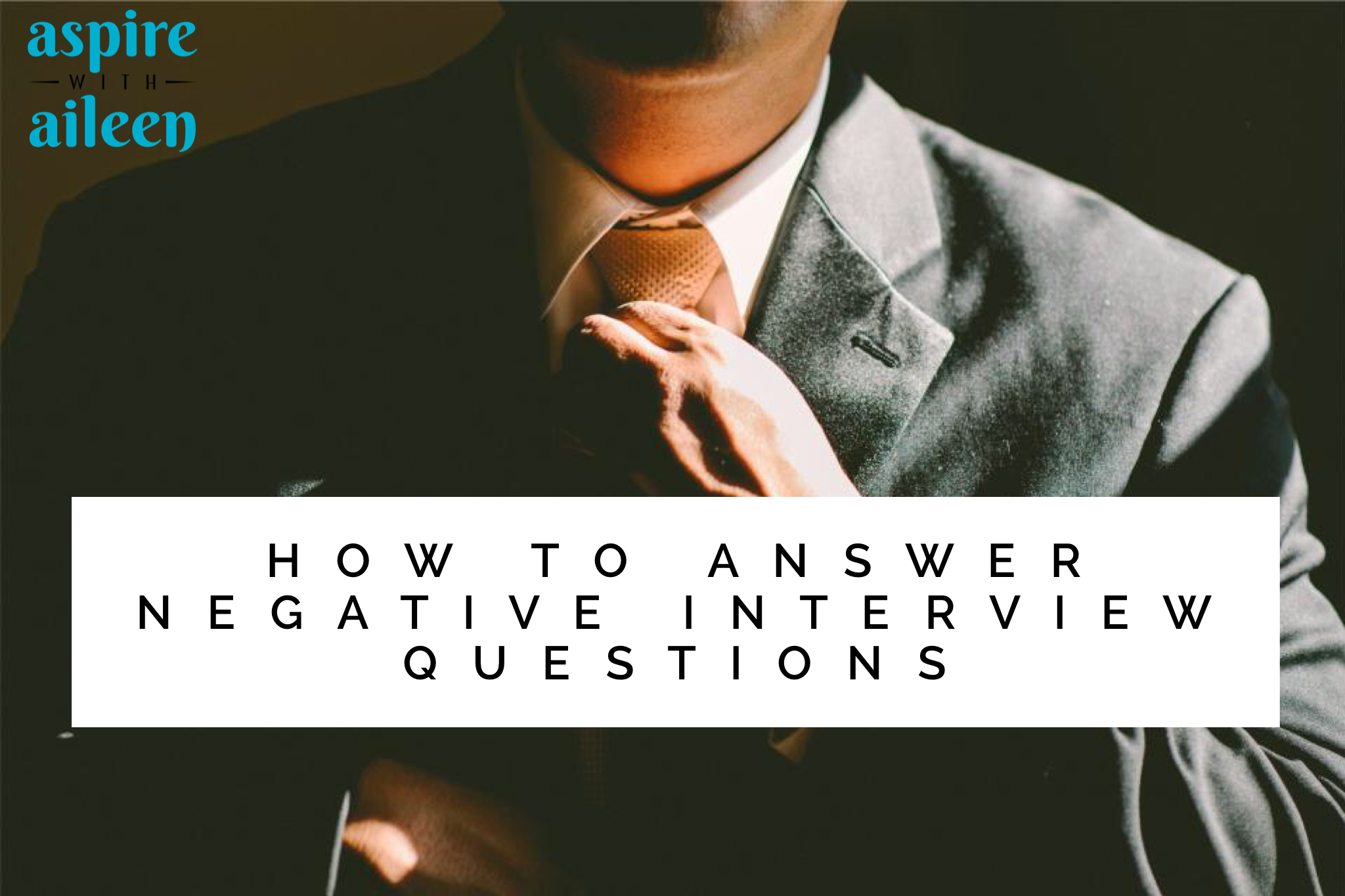Interviewing can be stressful enough, let alone when a prospective employer asks you a question that brings up some negative emotions.
Common interview questions where this may happen include:
Why are you leaving your current position?
What did you like least about your most recent role/company?
Tell me about a time when you disagreed with a colleague/client/customer.
Tell me about a time when you failed.
What’s a weakness of yours?
Fun list of topics, eh?
The basic strategy for these questions is this: provide an adequate and truthful answer without sharing too many dramatic details and while keeping a professional, calm tone.
Sounds manageable, but if you’re caught off guard by a negative question or you’re describing a situation that involved particularly high emotions, it can be quite challenging. When I do mock interviews with clients, I point out how even just one word choice can make a difference in how polarizing an example can sound (for example: That made me so furious vs That made me so frustrated. One word, big difference!).
So, what do you do?
Use the PAR approach.
This strategy works when answering any behavioral interview question because it gives you a framework for what information is most critical to include, along with how to organize it. People tend to be most long-winded when answering this style of question, and this method can help to weed out extraneous details. PAR stands for problem, action, result – a similar acronym is STAR which stands for situation, task, action, result. In short, you want to assess what problem or situation you’re going to describe, what action YOU took, and the conclusion (or the goal of your action if you didn’t see the conclusion/get the result you anticipated).
Practice out loud.
This aligns with previous interview prep tips I’ve shared, and it’s because I can’t emphasize it enough. You’ll notice how delicate the word choice is, and it’s better to stumble over it on your own than in front of the employer. Ideally, have a friend or career coach listen to your answer and give you feedback as to how it translated.
Choose your examples carefully.
If you get feedback that your answer is still a little bit touchy, or you’re continuously struggling with getting it to a place where you feel like it's a strong answer, choose a new example if possible. Those are signs that the situation was too complicated to describe easily or that you’re still feeling too strongly about it to share it with an employer in an interview.
a simple (and silly) example to help illustrate these practices
...fun fact, this is a true story from the job I held at Super Kmart at 16 years old!
Question: Can you tell me about a time you dealt with a difficult person (client/customer/colleague)?
Answer: While working as a cashier at Super Kmart, a middle-aged gentleman tried to purchase cigarettes from me. The strict store policy required employees to ask for ID from everyone, even if they appeared to be well over the legal purchasing age. The gentleman forgot his ID so I politely informed him that unfortunately I couldn’t complete the sale. He became extremely agitated and began yelling. I calmly replied that I’d be happy to refer him to my manager if he’d like to continue the discussion, as there was nothing I could do to change the policy. He agreed, I brought in my manager, and they sorted out a solution together so I could move on to serve the next customer.
In reality, I thought this man was completely inappropriate and rude, and that the policy was a bit extreme, but those stronger feelings aren't present in this response.
Use these tips and you’ll feel more confident when answering negative questions during your next interview!
Want a deeper dive into the strategies behind answering the two most dreaded interview questions (including the infamous weakness question)? Download my guide which includes a bonus: the simple but often forgotten tactic to nailing an interview.


